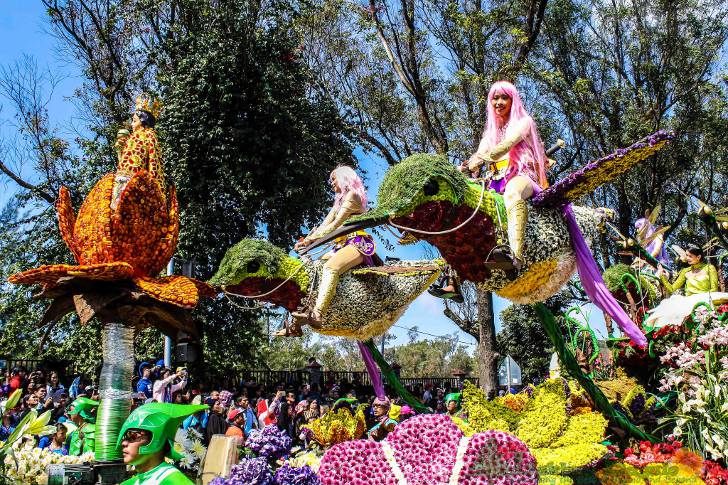Like many other festivals in the Philippines, Panagbenga Festival was created as a way to improve the economic situation in the region and the image of Luzon after the devastating earthquake that occurred on July 16, 1990. Baguio City was among the areas hardest hit by the earthquake. Water, electric and communications lines in the city were destroyed, at lot of people died or become homeless.
Baguio was rebuilt with the aid from the national government and international donors. After moving past the disaster, the city began hosting its Flower Festival as a way to rise up from the devastation, to boost tourism during the period of inactivity between the Christmas season and the summer season, and to help the younger generation of indigenous people to rediscover their old customs and traditions.
The first festival was held in 1995. The event received its current name in 1996. The world “panagbenga” is a Kankanaey term that can be loosely translated as “a time for flowering” or “a season of blossoming”. Panagbenga Festival is a tribute to Baguio’s beautiful flowers and a showcase of the city’s rich cultural heritage.
The Baguio Flower Festival traditionally kicks off on February 1 and lasts until early March. The first event of the festival is the opening parade followed by a short concert, street dancing, and music competitions. Other events and activities that take place during the festival include the Baguio Blooms Exposition and Exhibition, school-based competitions, the Philippine Military Academy alumni homecoming event, a golf tournament, a trade fair, and more.
The main highlights of the festival are the Grand Street Parade held on the fourth Saturday of February and the Grand Float Parade that takes place the following day. The Grand Float Parade opens with a shower of rose petals. It features vibrant floats covered entirely with flowers, marching bands, and dancers clad in flower-inspired costumes.
Panagbenga Festival closes on the first Sunday in March with an official closing ceremony and a spectacular firework display.

Photo: Vincent Tabor




